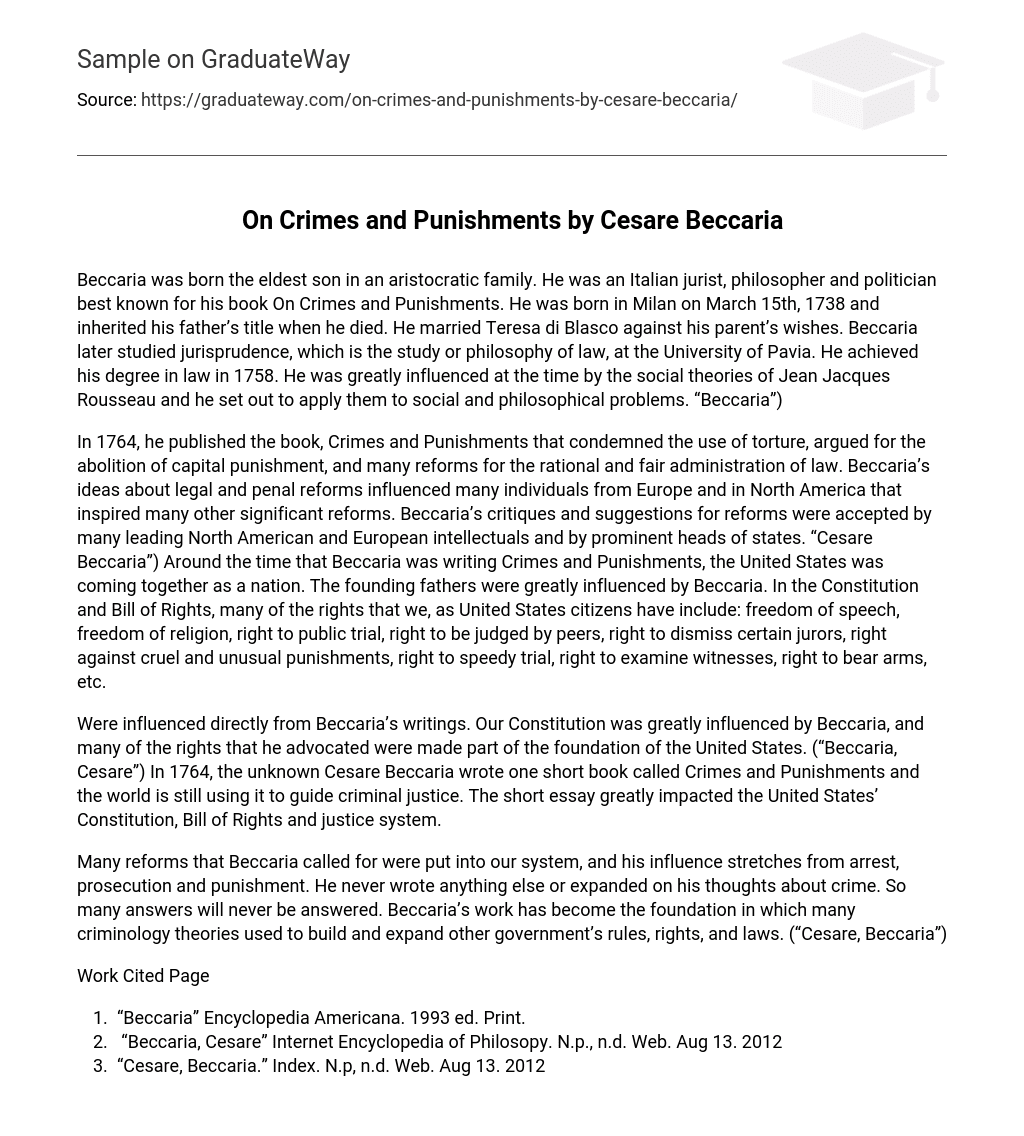Beccaria, an Italian jurist, philosopher, and politician, was born in Milan on March 15th, 1738. He came from an aristocratic family and became renowned for his book On Crimes and Punishments. Despite objections from his parents, he inherited his father’s title and later married Teresa di Blasco. Beccaria studied jurisprudence at the University of Pavia where he obtained a law degree in 1758. During this time, he found inspiration in Jean Jacques Rousseau’s social theories which he applied to various social and philosophical dilemmas (“Beccaria”).
Published in 1764, Cesare Beccaria’s book “Crimes and Punishments” not only condemned torture but also advocated for the abolition of capital punishment. Additionally, Beccaria proposed several reforms to improve the rational and impartial administration of law, which greatly influenced individuals in Europe and North America. These ideas inspired influential intellectuals and heads of states on both continents to widely accept significant reforms.
At the same time that Beccaria was writing his book, the United States was being formed as a nation. The founding fathers of the United States were deeply influenced by Beccaria’s ideas, leading to the granting of numerous rights to U.S. citizens today. These rights include freedom of speech and religion, the right to a public trial with peers, the ability to dismiss certain jurors, protection against cruel and unusual punishments, entitlement to a speedy trial, opportunity to examine witnesses, as well as the right to bear arms. All these rights were incorporated into both the Constitution and Bill of Rights.
Cesare Beccaria’s book “Crimes and Punishments,” published in 1764, had a direct influence on the development of our Constitution. The rights he advocated for have become essential to the foundation of the United States. Even today, his writings continue to serve as a guiding principle for criminal justice systems globally. This impact is noticeable in different aspects of the United States, including our Constitution, Bill of Rights, and justice system.
Beccaria’s ideas on reforms in arrest, prosecution, and punishment have been incorporated into our system. However, he did not provide further details or advancements on his thoughts regarding crime, resulting in lingering unanswered inquiries. Beccaria’s work has laid the foundation for numerous criminology theories that have played a crucial role in shaping and expanding rules, rights, and laws across multiple governments. (“Cesare, Beccaria”)
Work Cited Page
- “Beccaria” Encyclopedia Americana. 1993 ed. Print.
- “Beccaria, Cesare” Internet Encyclopedia of Philosopy. N.p., n.d. Web. Aug 13. 2012
- “Cesare, Beccaria.” Index. N.p, n.d. Web. Aug 13. 2012





